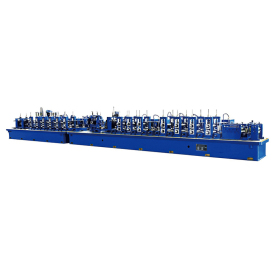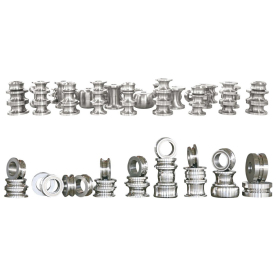[Precision Impedor for Circuits]Understanding the Role of Precision Impedors in Circuit Design: Enhancing Performance and Reliability in Electronic Applications
News 2024-9-23
In the realm of electrical engineering and circuit design, precision impedors have emerged as crucial components that facilitate the accurate performance and reliability of various electronic applications. These specialized passive devices are meticulously engineered to provide specific resistive, capacitive, or inductive characteristics, making them indispensable in the optimization of circuit behavior. This article delves into the fundamental concepts surrounding precision impedors, their key features, applications, and the influence they exert on the overall efficiency of electronic systems.
What are Precision Impedors?
Precision impedors are components that exhibit highly stable and defined electrical characteristics, often characterized by low tolerance levels and minimal temperature coefficients. These attributes allow for consistent performance across a range of environmental conditions, which is particularly important in high-precision applications where any deviation from expected parameters can lead to significant errors. Common types of precision impedors include resistors, capacitors, and inductors, each designed to fulfill specific roles within a circuit.
The Importance of Precision in Circuits
In electronic circuits, the concept of precision refers to the degree of exactness with which a component can achieve its intended value. For instance, in an audio application, a slight variation in the resistance of a resistor could impact signal quality, leading to distortion. By employing precision impedors, engineers can mitigate these variances, resulting in enhanced signal integrity and overall circuit performance.
Factors such as tolerance, temperature stability, and aging effects are crucial when selecting impedors for a circuit. For instance, a precision resistor might have a tolerance of 0.1%, which means its actual resistance will likely remain within 0.1% of its specified value. Temperature stability is equally important since many components experience changes in performance due to environmental variations. Precision impedors are designed to exhibit minimal drift in their values even as external temperatures fluctuate.

Understanding the Role of Precision Impedors in Circuit Design: Enhancing Performance and Reliability in Electronic Applications
1. **Low Tolerance Levels:** Precision impedors are manufactured with tight tolerance specifications that ensure minimal deviation from their nominal values. 2. **Temperature Coefficients:** These components are designed with low temperature coefficients, which describe how much a component’s value changes with temperature. A low coefficient means the impedors perform reliably across a wide temperature range.

Understanding the Role of Precision Impedors in Circuit Design: Enhancing Performance and Reliability in Electronic Applications
4. **Measurement Capabilities:** Certain precision impedors, especially precision resistors, can be integrated into measurement circuits, where their accuracy is paramount in obtaining precise readings.
Applications of Precision Impedors
The versatile nature of precision impedors makes them suitable for a myriad of applications across various fields, including:
- **Medical Devices:** In medical instrumentation, precision impedors are essential for providing accurate measurements and controlling functions like signal amplification in diagnostic machines. - **Telecommunications:** In high-frequency telecommunications systems, precision impedors ensure that signal integrity is maintained, thereby preventing data loss during transmission.
- **Aerospace and Defense:** Circuits in aerospace technology demand absolute reliability, and precision impedors are often utilized in navigation and communication systems due to their robustness and longevity.

Understanding the Role of Precision Impedors in Circuit Design: Enhancing Performance and Reliability in Electronic Applications
Conclusion
The integration of precision impedors in circuit design is fundamental to achieving high performance and reliability in electronic applications. These components not only support the necessary electrical characteristics required for various functionalities but also exhibit durability and consistency over time. As technology continues to advance, and the demand for precision in electronic systems heightens, the role of precision impedors will only grow in significance. Engineers and designers must remain informed about the development of these critical components to leverage their benefits fully and enhance the future of electronic circuit design. By understanding and implementing precision impedors effectively, the electronics industry can strive for greater innovation and excellence.
